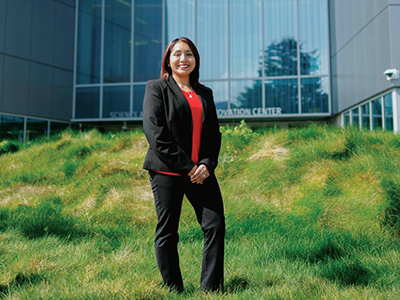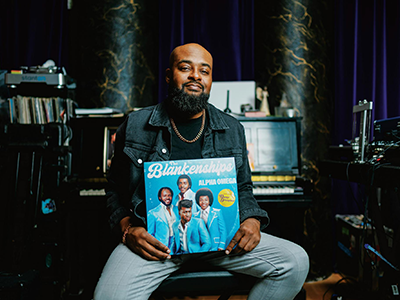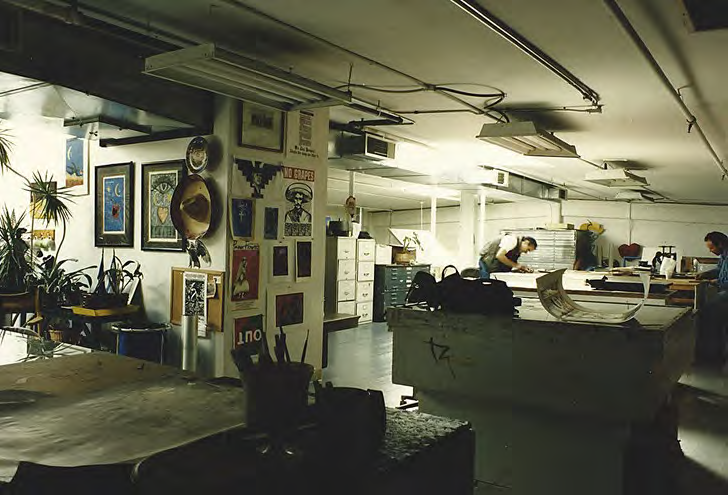SFSU professor, students pay tribute to LGBTQ pioneers with online exhibition
‘Queer Transformations at SF State, 1969 – 1974’ examines a transformative chapter in LGBTQ and campus history
It was November 1970, amid antiwar protests and just a year and a half after a long and difficult student strike at San Francisco State College. The administration granted recognition to the Gay Liberation Front as an official student organization at a time when LGBTQ clubs did not exist in most colleges and universities.
“At one time even being gay could get a person thrown off campus,” Gay Liberation Front founder Charles Thorpe told the San Francisco Gay Press. “... This is another victory on our road to more liberation. ... In celebration a thousand lavender bunnies will be freed on campus within the next two weeks.”
The lavender bunnies never appeared, but future generations of Gators would feel less of a need to hide their identity.
Thorpe’s bold commentary is just one of dozens of anecdotes of San Francisco State University history in a new online exhibition, “Queer Transformations at SF State, 1969 – 1974,” on the OutHistory website. The exhibition also spotlights contributions from faculty pioneers such as Sally Gearhart and Morgan Pinney, folk musician Betty Kaplowitz (B.A., ’70) and antiwar advocate Gary Weinberg (B.A., ’72).
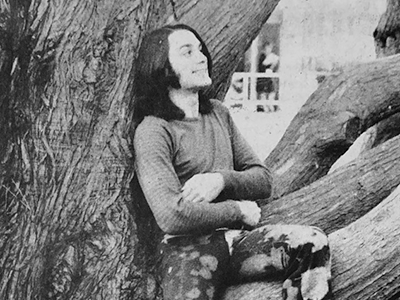
Charles Thorpe. Photo courtesy of University Archives/J. Paul Leonard Library.
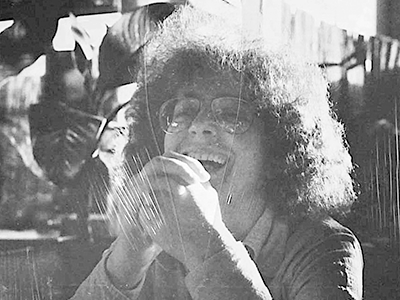
Betty Kaplowitz. Photo courtesy of Boof Bray Records.
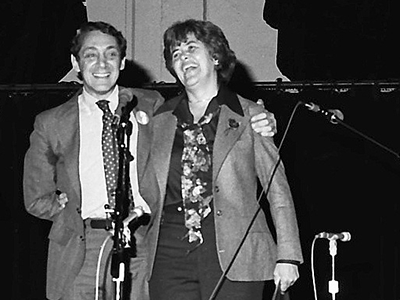
San Francisco Sup. Harvey Milk (left) and Professor Sally Gearhart. Photo by Steve Savage.
History Professor Marc Stein is the director of the website and the curator of the exhibit. More than 40 SFSU students contributed to researching it. SFSU’s Marcus Transformative Research Award and the Jamie and Phyllis Pasker Chair in U.S. History and Constitutional Law helped support the exhibit.
Stein notes that the student-led 1968 – 1969 Third World Liberation Front strike, which resulted in establishing the first-ever College of Ethnic Studies, inspired the LGBTQ liberation movement on campus and beyond.
“As it turns out, LGBTQ people participated in the strike and the strike inspired an upsurge in LGBTQ activism,” said Stein, president-elect of the Organization of American Historians. Thorpe, the Gay Liberation Front founder, was active in the strike and inspired by the civil rights movement, for example.
As a research assistant on “Queer Transformations at SF State,” Zach Greenberg (B.A., ’24; M.A., ’25) spent months reviewing bound volumes of archival SF State student newspapers. He added about 700 of the articles cited in the exhibition, in addition to fact checking, editing and contributing his own photographs.
“This provided useful training for me, but also it provided an example of the kind of work I’d like to do, which is making history publicly available,” said Greenberg, who won this year’s History Department Graduate Award for Distinguished Achievement. “It was very interesting to see San Francisco State students in the late 1960s and early 1970s around my own age, take up very important activism and coming out as queer people — at significant risk to themselves.”
View the “Queer Transformations at San Francisco” online exhibition. (Advisory: The exhibition includes nudity, explicit language and hate speech.)

